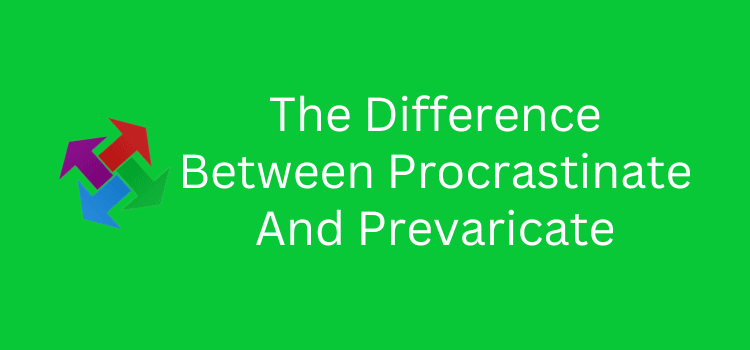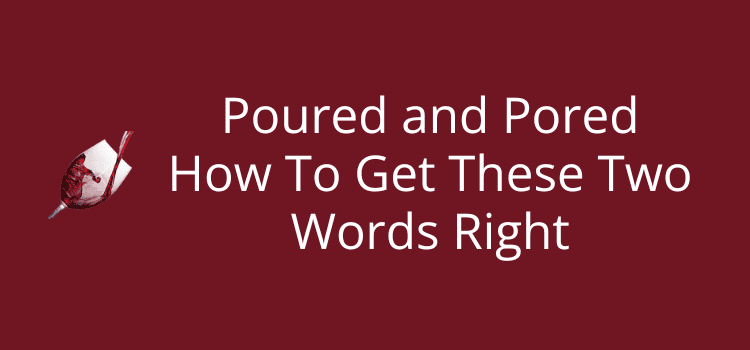
Being a writer is exciting and fun. But we have so many confused words to work with to express our ideas and imagination.
We have such a vast vocabulary to play with. However, certain words that sound alike or have similar meanings can cause problems for even the best writers.
One of the most common traps to fall into is when we use homonyms. They sound almost the same, but the spelling and meanings are different.
I don’t think there’s a writer alive who hasn’t made an error or two in word choice with some of these confusing word pairs.
Never forget your dictionary

You might believe that your spell checker will keep you out of trouble.
But that’s not always the case.
The only way to check is to keep your eyes peeled when you check your writing.
A dictionary is only one click away, so use one to make sure your vocabulary is perfect.
There are lots of homonym words in English that sound alike, so be careful.
You know about two, to and too and there, their and they’re.
It would be a long list to include all word pairs like these.
So, it’s better to look at some common words we can get wrong.
The confused words in the list below are often the most problematic for new writers.
Commonly confused words in writing

Advice vs. Advise
Even your grammar checker could miss this one. They have a similar meaning, but one is a noun, and the other is a verb.
Advice – is the noun form when you recommend that someone should do something.
“If you want my advice, you should see your doctor.”
Advise – is the verb form when you give a piece of advice to someone.
“I advise you to see your doctor.”
Accept vs. Except
Along with affect and effect, these are two confusing words that so many writers can get wrong. It is often not from not knowing but can be a typo.
Accept – to consent to receive something or to undertake an action
“Yes, I accept your invitation. Thank you.”
Except – without or not including something, or other than something
“Yes, I can come any day except Tuesday.”
He had no friends except for his dog.
Aloud vs. Allowed
You pronounce these two words the same, but the meanings couldn’t be more different. It’s easy to get this one right all the time.
Aloud – audibly, not silently or in a whisper.
He read the letter aloud at the meeting.
Allowed – past tense of the verb allow – to be permitted to do something.
The director allowed him to read the letter at the meeting.
Alter vs. Altar
Once again, these words sound the same, but their definitions are very different.
One letter makes all the difference between the two. You should be able to spot this error easily when you are proofreading.
Alter – To modify or change something.
Altar – a table or flat-topped block at the front of a church.
All Ready vs. Already
You see this mistake a lot, so take care in your writing. It’s as common as all right and alright.
All ready – everything is entirely prepared.
Already – before or by now or the time in question or surprisingly soon or early.
Bazaar vs. Bizarre
You might only strike these words when you are writing a story. But it’s worth noting the difference.
Depending on your niche, you might need to use both frequently. Always do a sentence check when you use these words.
Bazaar – a market in the Middle East.
Bizarre – something weird or strange.
Centurion vs. Centenarian
These two words have distinct meanings, but centurion has taken on some modern meanings.
Centurion – the commander of a century in the ancient Roman army.
Centenarian – a person who is a hundred or more years old.
Coarse vs. Course
Of course, we know what it means, but when you are on a roll and writing in a hurry, this is an easy mistake to make.
Coarse – rough or harsh in texture.
Course – a direction, school subject, or part of a meal.
Of course – introducing a qualification or admission.
Complement vs. Compliment
It’s easy to get these two words wrong, so take care.
Complement – something that contributes extra features to something else.
Compliment – a polite expression of praise or admiration.
Draught vs. Draft
There is a distinct difference in the way you spell these two words. But for some reason, you sometimes see the error in online writing, especially.
They sound the same, but that’s where the similarity ends.
Draught – a current of wind or air. As an adjective, denoting beer or cider served from a barrel.
Draft – the preliminary version of a piece of writing – as a verb to prepare a preliminary version of a document.
Emigrate vs. Immigrate
You’re not alone if you have trouble with this word pair.
The difference in meaning is subtle. One is to go, and the other to arrive.
Emigrate – leave one’s own country in order to settle permanently in another.
Immigrate – come to live permanently in a foreign country.
Gaff vs. Gaffe
Be careful you don’t make an embarrassing gaffe here.
Gaff – a hook or barbed spear for landing large fish.
Gaffe – an unintentional act or remark causing embarrassment to its originator; a blunder.
Related reading: Mincemeat or minced meat?
Lead vs. Led
These two words get confused all the time. Led is the past tense form of the verb to lead.
As well as that, lead is a type of metal but is pronounced the same as led.
To Lead – show the way to a destination by going in front of or beside.
Led – past tense of to lead.
Lead – a soft, heavy, ductile bluish-grey metal.
Loose vs. Lose
You can lose many readers with loose writing.
Loose – not firmly or tightly fixed in place or not fitting tightly or closely.
Lose – become unable to find or fail to win.
Passed vs. Past
How many times do you see errors with past and passed? It is probably one of the most commonly confused words.
Passed – to move or cause to move in a specified direction or pass or cross something.
He passed the railway station on his way to the supermarket.
Past – gone by in time and no longer existing.
In the past, there was no electricity, so we used candles and lanterns.
Principle vs. Principal
You might not use these words often. But it’s worth noting in your memory.
Principle – a fundamental truth or proposition that serves as the foundation for a system of belief or behavior.
Principal – first in order of importance or main, or the most important or senior person in an organization or group.
Squib vs. Squid
These two words are associated with the expression, a damp squib.
A squib is a firecracker, which is the correct word in the metaphor.
A squid is an animal that lives in the ocean, so it can’t be damp.
Related reading: The archaic use of truck we still use in idioms
Stationary vs. Stationery
How confusing are there two words? Honestly, you don’t want to be caught stationary in a stationery store.
Stationary – not moving or not intended to move.
Stationery – writing and other office materials.
Unkept vs. Unkempt
The two words, unkept and unkempt, have very similar meanings.
In general use now, unkempt is more common.
They made so many unkept promises.
The unkempt house was the result of years of neglect.
Whet vs. Wet
You see this mistake all the time, especially in the following example phrase.
Here’s a recipe to wet your appetite. Incorrect
Here’s a recipe to whet your appetite. Correct
Whet – excite or stimulate someone’s desire, interest, or appetite.
Wet – covered or saturated with water or another liquid.
Whether vs. If
Sometimes, you can use either word.
But in general, we use if to express a conditional phrase and whether when there is a choice or alternative possibilities.
You can only use whether before an infinitive verb.
Whether or If – he wasn’t sure if he would arrive on time. – he wasn’t sure whether he would arrive on time.
If – If I get the job, I’ll have to commute.
Whether – I can’t decide whether to go by train or take my car.
Conclusion
I’m sure you know the difference between almost all of these confusing words.
But for new writers especially, they are worth keeping in mind.
It’s so easy to make a mistake with these confused words when writing your first draft.
In fact, every writer makes typos and errors, no matter how experienced they are.
So, you need to check very carefully before you publish or submit your text.
Yes, you have your grammar, spelling, and punctuation to check.
But don’t forget to check your vocabulary and word selection.
Related reading: What’s the difference between further vs. farther?
Share This Article



Here are three simple ones I see all the time: are/our, there/their, it’s/its. Makes the red pen in my head go crazy.
When I sae ‘whether’ I was expecting to see it paired with ‘weather’ :)
Sorry – typo ‘saw’ – not ‘sae’
I just saw one of your examples on Facebook yesterday of a school administrator with a marked marking space called “principle.” It’s probably not a good look if you are the head of a school and you don’t know that’s incorrect.
I hope he’s not the head of the English department!
There is further confusion ro be found in American English vs British English spellings for some of these – Draught vs Draft comes to mind. There are other meanings, too, for Draught – a Draughtsman (American Draftsman) produces drawings of objects for manufacture, a Draught horse pulls (or draws) a cart or agricultural implement. And then one can take a draught of beer, Irish whiskey or Scotch whisky to help overcome the confusion!
Yes, and then there is the reference to a ship’s waterline. It is draft in American spelling and draught in British.
Unfortunately, I found several errors in this post besides the one in the title….Perhaps we should chat some time?
Sally Ember, Ed.D.
I’m sorry, but we don’t offer a chat feature on our site. But you are welcome to note your thoughts on any errors or omissions in another comment or via our contact form.